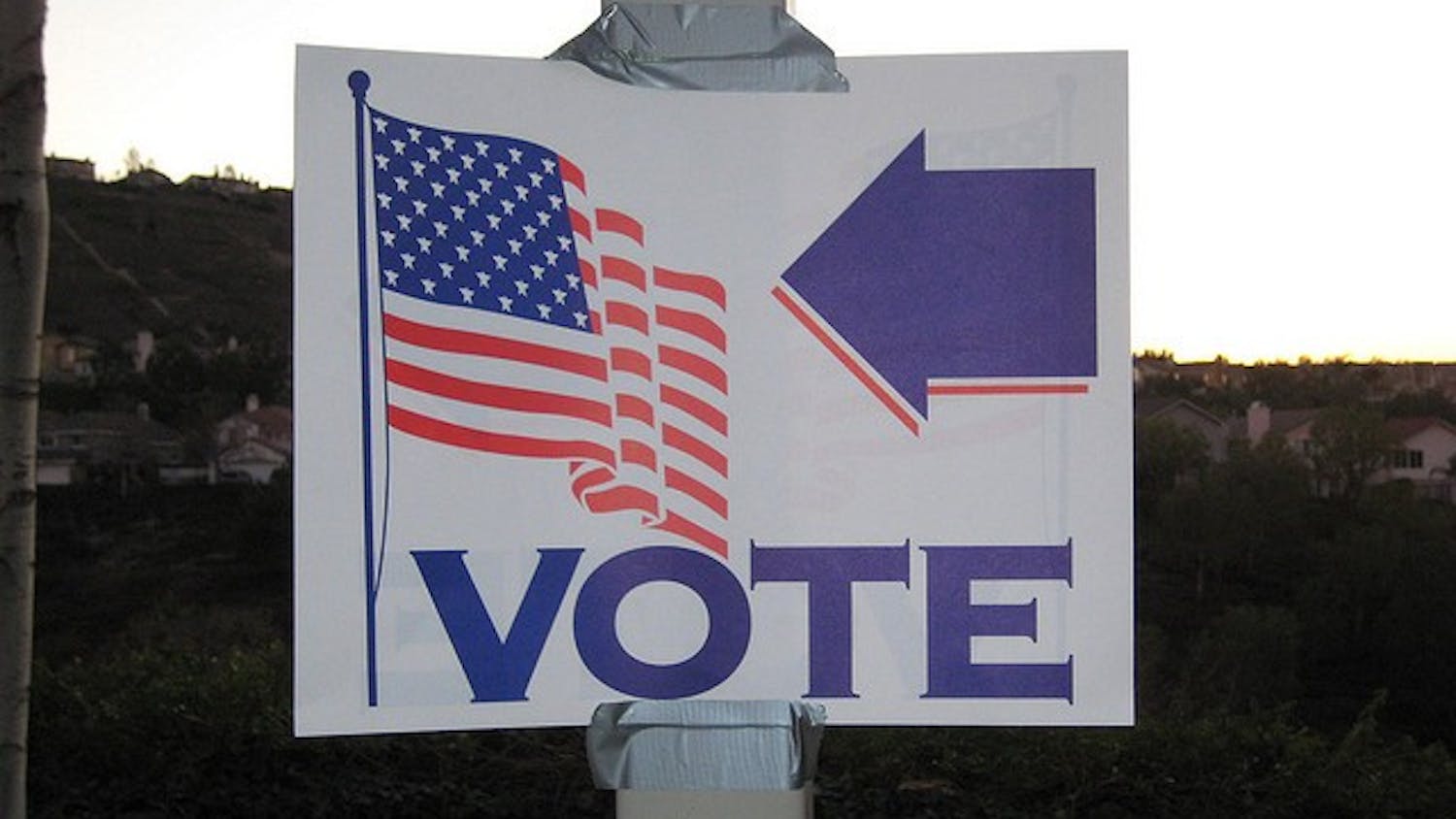One year after coming to AU, mental performance coach Brian Levenson continues to build relationships with student-athletes, contributing to their success as athletes and individuals. Levenson uses open conversations with athletes and coaches to identify and enhance skills relevant to success on the playing field.
A long-time partner of the AU wrestling program and head coach Teague Moore, Levenson was officially hired by the University in the fall of 2016. His availability at AU is not unique, as a growing number of universities -- including the University of Michigan and Oklahoma -- are adding psychology staff to their athletic departments. Several professional teams, including the Seattle Seahawks and Dallas Mavericks, have hired full-time mental performance coaches, too.
“The population at AU is a great fit for the work that I do because you combine open-mindedness with competitiveness with the idea of doing things the right way,” Levenson said in an interview with The Eagle last fall. “My practice very much aligns with those concepts.”
In addition to the wrestling program, which has continued to use Levenson’s services since his hiring by the athletic department, the women’s basketball team now incorporates him into their team activities. The two programs hope the investment will improve performance.
Mental performance in wrestling
Levenson’s partnership with Moore dates back to Moore’s first year with AU in 2011. Moore met Levenson through an alum of the wrestling program, who knew Levenson’s father. The alum put Moore in contact with Levenson, who at that time was working locally in Bethesda, Md. After initially meeting the mental performance coach, Moore said he felt Levenson could be a valuable resource to his wrestlers in an area that receives little attention.
“I feel like in sports today, we do an extremely good job of preparing the physical body for the student-athlete,” Moore said. “We do all these things to physically prepare them, but in sports, a lot of times the biggest obstacles that most athletes have to overcome is in between their own ears.”
Moore said how an athlete is thinking before and during competition can influence their performance as much as their physical preparedness. Levenson talks with athletes to overcome these mental hurdles and train their “mind muscle” to prepare for competition, Moore said.
Moore identified two wrestlers, redshirt senior Brett Dempsey and redshirt junior Josh Terao, as current athletes who have benefited from Levenson’s work. Dempsey, a heavyweight wrestler, made the transition from the 184-pound weight class to the heavyweight class in less than a year. After struggling to a 17-18 record in his first year as a heavyweight, Dempsey began the 2017-18 season with two victories over nationally ranked opponents in his first two bouts.
“If you go back five years ago when he was coming out of high school, Brett was not a nationally ranked wrestler,” Moore said. “Fast forward five years, now he’s a nationally ranked wrestler. That doesn’t happen by chance. Somebody like Brian helps give him perspective and set goals to reassess himself.”
Josh Terao, a 125-pound wrestler, faces an entirely different type of mental hurdle than his teammate Dempsey: the weight of his brother, AU All-American and 2015 graduate David Terao. Levenson helps Terao separate himself from his brother and forge his own path as an AU wrestler.
“Josh feels like he’s in David’s footsteps,” Moore said. “For Brian, when he’s working with Josh, one of the things we want to make sure Josh understands is that: ‘you’re a totally different athlete, you’re a totally different person.’”
Terao, Dempsey and all of Moore’s wrestlers meet with Levenson regularly, as individuals and through team-scheduled meetings, which helps develop camaraderie, Moore said. He makes a point of having incoming freshmen meet with Levenson to help them adjust to the chaotic life of a student-athlete, he said.
During the years before Levenson came on as a resource for the entire athletic department, Moore spoke with other AU coaches to make them aware of Levenson’s services. He arrived to a mixed reception.
“There’s some coaches who don’t want their student-athletes working with somebody like that, somebody outside of their coaching staff,” Moore said. “They kind of want to have complete and total autonomy on what their athletes are hearing, what their athletes are seeing, what their athletes are doing.”
Women’s basketball prospers from Levenson
Since Levenson joined the athletic department, the women’s basketball team has been one of the programs to use his services the most. The team scheduled several team-building meetings with Levenson before and during the 2016-17 season. Additionally, several athletes on the team, including senior guard Maria Liddane, meet with Levenson on a regular basis.
“Team chemistry has been a big one this year,” Liddane said. “He’s been troubleshooting and working on methods to get our chemistry to be better than it has ever has been. It’s been paying off, and we haven’t even played a game yet.”
Liddane said Levenson focuses on individual areas -- like confidence or limitations on the court -- and always offers a unique perspective to troubleshoot problems on an individual level.
“Brian is such an expert in his field that he’s an invaluable resource for all of us,” Liddane said. ”It’s paid off for me as a senior. After having met with him for over a year, I can really tell a difference in how I’m approaching the game.”
Levenson’s approachability and openness are crucial, Liddane said. Meetings with Levenson to focus on athletic performance help relieve the stress of academic work and responsibilities that student-athletes have to balance.
“He’s super outgoing, easy to relate to and very interested in you. He takes a genuine interest in everyone he meets with,” Liddane said. “He’s worked with some of the top athletes in the world and really has helped mental performance for those athletes who have achieved the highest honors in their respective sports.”
But at AU, Levenson offers himself as a personable and approachable resource who can relieve stress for any student-athlete who meets with him.
“Sometimes, we as athletes and coaches, once you get engrossed in your sport, have trouble seeing outside your daily confines,” Moore said. “He’s going to get the student athlete and/or the coach to thinking from a little bit different perspective.”
This article originally appeared in December 2017 print edition of The Eagle.





